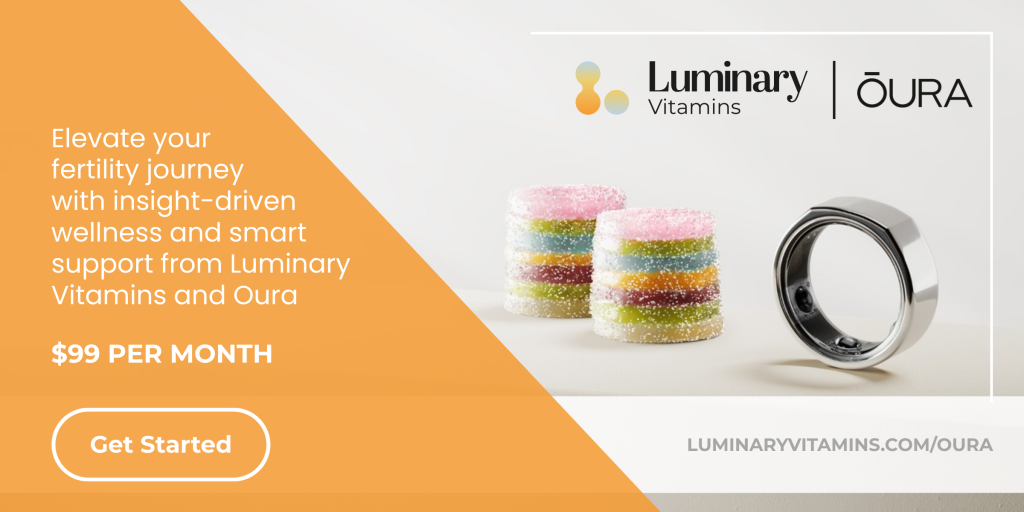Preconception and prenatal vitamins
Supporting your health and wellness is an essential part of preparing for pregnancy. At Reproductive Science Center of the San Francisco Bay Area (RSC), we recommend that patients begin taking a preconception nutritional supplement one to three months before trying to conceive and continue through the first 10 weeks of pregnancy. As pregnancy progresses, nutritional needs change, and a traditional prenatal vitamin may be more appropriate later in the first trimester.
Emerging research shows that nutrient needs before conception are different from those during pregnancy, underscoring the importance of stage-specific nutrition throughout the fertility journey. We’re committed to helping our patients make informed choices about the supplements that best support their reproductive and overall health.
RSC is proud to recommend Luminary Vitamins and Theralogix, as both product lines are independently and third-party verified, offering high-quality, evidence-based nutritional supplements to support patients throughout their fertility journeys.
Luminary Vitamins
Luminary Vitamins, a line of physician-formulated, stage-specific nutritional supplements is designed to support patients from preconception through postpartum. Luminary products are independently tested and third-party verified for quality, ensuring evidence-based support throughout your fertility journey.
Why Luminary Vitamins?
- Daily, low-calorie gummies for convenience and ease
- Stage-specific formulations designed by fertility experts
- Provides essential nutrients in a single-dose gummy—no more handfuls of pills
- High-quality, third-party tested ingredients
Luminary’s specialized product line includes:
- Create – Preconception support for women
- Create for Men – Formulated to support sperm health
- Form – Early pregnancy
- Flourish – Later pregnancy
- Nurture – Postpartum support
- Balance – Designed for individuals with PCOS
- Thrive for Women and Thrive for Men – Everyday health and wellness

Theralogix Vitamins & Supplements
Theralogix originated from a group of healthcare providers who collaborated with academic physician-scientists to develop trusted nutritional supplements for their patients. Theralogix vitamins offer age-based formulations and feature ingredients sourced and certified within the United States.
Why Theralogix Vitamins & Supplements?
- Supplements from science – all products backed by scientific evidence
- Exceptional ingredients, without exception – sourced worldwide using bioavailable forms
- Certified pure – independently tested by NSF®
- Referred and preferred – over a million referrals by thousands of physicians since 2002
Theralogix’s product line includes:
- Ovasitol® – Supports menstrual regularity, hormone balance, and insulin levels for fertility support
- OvaNAD+™ – Nicotinamide riboside (NR) and pterostilbene to support NAD+ production, for healthy ovarian function, reproductive health, and overall vitality
- OvaVite – Preconception prenatal supplement plus coenzyme Q10 (CoQ10)
- Theratonin® – Melatonin supplement designed to support sleep and female fertility
- DHEA 25 – Micronized DHEA to support ovarian health and overall well-being
- NeoQ10® – Enhanced CoQ10 supplement to support cellular energy and egg health
- TherOmega® – Concentrated omega-3 fish oil for heart, brain, and reproductive health
- ConceptionXR® Motility Support for Men – Male fertility support focused on improving sperm motility
- ConceptionXR® Reproductive Health for Men – Foundational male fertility supplement for family planning


